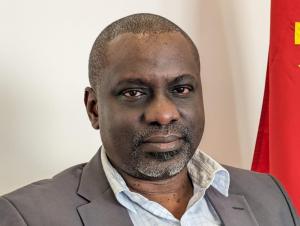Building a Healthier Future: Revitalizing the Primary Health Care Approach in Angola
For the last seven decades, the World Health Organization (WHO), the global authority on health, has served as the nexus connecting nations, partners, and people to promote health, ensure global safety, and aid the vulnerable. Our unwavering mandate is to help everyone, everywhere, achieve the highest standard of health and well-being. Today, as the Acting WHO representative in Angola, I want to share an ambitious yet pivotal transition: the shift from the traditional Primary Health Care (PHC) approach to a newly Revitalized Primary Health Care Approach.
Our prior focus on PHC emerged from the 1978 Alma Ata conference, which advocated for healthcare accessible to all, with a focus on accessibility, public participation, health promotion, and appropriate technology. It served as a base of our health system, ensuring basic yet essential services to our citizens. However, the evolving health dynamics, persistent health inequalities, changing socio-demographics, and the burden of new health needs necessitate a recalibration of this approach.
WHO’s mission, encapsulated by our triple billion targets, aims to secure universal health coverage for a billion more people, protect another billion from health emergencies, and ensure a billion more enjoy better health and well-being by 2025. However, despite some progress, our health service coverage in Africa lags behind the global average. Financial risks remain high, with out-of-pocket in Africa at 36% on average and 34% in Angola. In addition, the health workforce and infrastructure in the health sector face significant shortages. At the same time, 75% of countries in the WHO African Region spend an average of $54 per capita on health, short of the per capita requirement needed to provide a package of essential health services, estimated at $127. Therefore, the Abuja target of allocating up to 15% of the general state budget to health remains unfulfilled, further delaying the realization of the Health for All assumption.
With the COVID-19 pandemic, our health systems have shown resilience and capacity for improvement but have also exposed vulnerabilities and areas for further development. It's time to adapt and evolve, embracing the Revitalized PHC Approach, as the Astana Declaration 2018 envisioned. This approach is person-centered, attending to our populations' diverse health and well-being needs and extending the entire continuum of care.
So, what does this revitalized approach mean for Angola? It implies a shift from a package for the rural poor to an essential package for all, a move from a program-centered system to one that prioritizes the individual, from focusing primarily on mothers and children to addressing all vulnerable populations, and from focusing on acute infectious diseases to addressing all conditions. It means recognizing that PHC is not cheap but a right, offering good value for money.
We've outlined our path through five key action areas to realign our health systems in line with the revitalized PHC approach.
Firstly, we must agree on an essential health package of services, a fundamental shift from the basic packages of the past. We must focus on innovative ways to deliver these crucial services to all, regardless of age, location, or health status.
Secondly, we need to explore the best modalities for delivering essential services. This includes defining the roles and relationships between various providers and mapping out the critical service platforms best suited for each modality.
Thirdly, integrating PHC components is crucial. We aim to transition from vertical, isolated programs to combined, comprehensive services, incorporating multisectoral engagement and community empowerment.
Fourthly, system readiness is vital. This involves preparing our health system to deliver these essential services more effectively. We must strengthen licensing, registration, and accreditation systems, improve supervision and mentoring, and ensure patient safety. We must also establish and adhere to care guidelines, standards, charters, and audits.
Lastly, we need a robust monitoring system. This includes a comprehensive health information system strategy and an M&E plan. Also, analytic capacity and the development of PHC knowledge products are essential for understanding our system’s functionality.
We are at a crucial juncture. The road to health for all is demanding, but we are ready for the challenge. Let us commit to this journey together, reassured that our shared vision of a healthier Angola will become a reality. The future of health, not only for Angola but for Africa, hinges on our willingness to embrace the Revitalized Primary Health Care Approach.
"Dr. Humphrey Karamagi, a native of Uganda, is a renowned public health expert committed to improving health systems worldwide. Since June 2023, he has been the Acting WHO Representative in Angola. He holds a Ph.D. in Public Health from the London School of Hygiene and Tropical Medicine, an MSc from the London School of Economics, and an MBChB from Makerere University Medical School. His work in several countries at the level of the WHO African Region has strengthened health services and improved technical cooperation."
